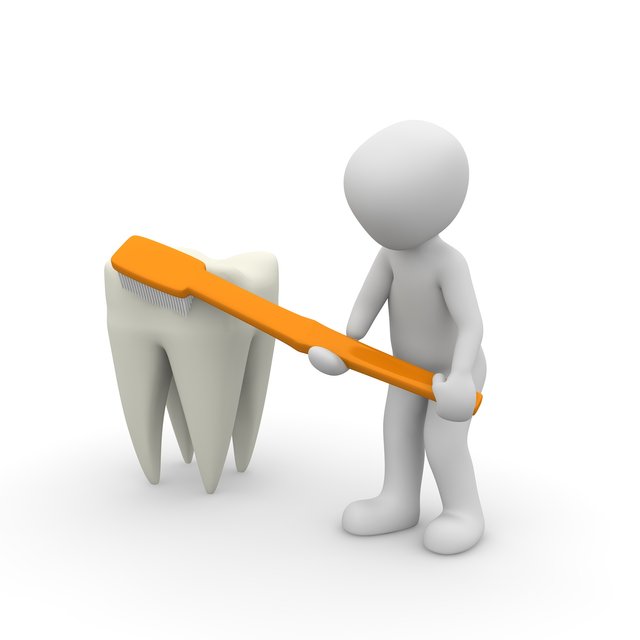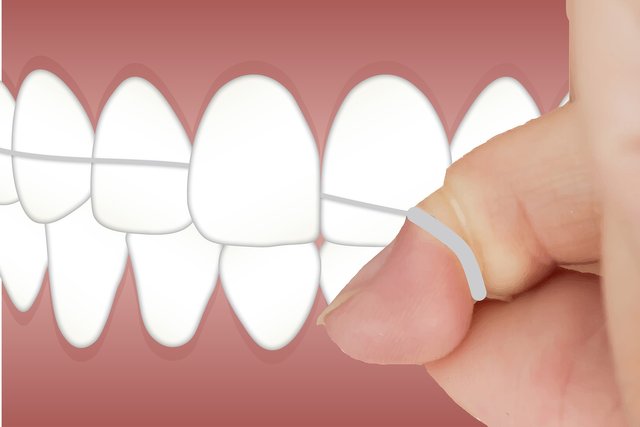EVERYTHING YOU NEED TO KNOW ABOUT YOUR DENTAL HEALTH
- Do you have a bad breath?
- Do you often experience tooth ache?
- Do you always have mouth sores that don't go away?
- Do you often have bleeding gum ?
Join me once again as we explore another educative article about you and your health. Let's go!
DENTAL HEALTH AND ORAL HYGIENE
Dental health has to do with the healthiness of your mouth, including your tongue, teeth, gum, throat and surrounding bones around the mouth. It is very essential to take care of your oral health, as it can cause serious complications and diseases in your mouth and other areas.
Dental health is linked to your whole body health. For instance when you have problems with your teeth or an infection probably caused by a bacteria. The bacteria can get into your blood stream and get carried to other areas in your body causing more health issues.
According to Cleveland clinic
Oral hygiene is the practice of keeping your mouth clean and disease-free. It involves brushing and flossing your teeth as well as visiting your dentist regularly for dental X-rays, exams and cleanings.Source
From the definition above you see that good oral hygiene is necessary and important for a healthy living. It allows you chew, taste sweet ad delicious food, speak clearly and express your emotions facially through smiling. . Poor oral hygiene can cause a varieties of issues including; tooth ache, bad breath, cavities, gum disease and so on.
SIGNS OF POOR ORAL HYGIENE
If you notice any of these signs, then your oral hygiene practices are very poor. They include;
- Bad breath
- Tooth ache
- Mouth sores
- gum itching
- Bleeding gums
- Coloured teeth and many more.
SOME GOOD ORAL HYGIENE PRACTICES
Here are some good oral hygiene practices that can help keep your teeth in good shape and condition for a lifetime.
1. BRUSH YOUR TEETH PROPERLY-
Bad brushing of teeth is almost as bad and shameful as not brushing at all. To keep your teeth clean and healthy it is essential to eliminate dental plaque. A sticky colourless stream of bacteria. This plaque, if not removed, can accumulate causing tooth decay, or build up and harden causing gingivitis(gum disease).
Dental plaque can be hard to see. If there are any areas in your teeth where your gum has pulled out from your teeth. These plaque can build up there causing new decay.
BRUSHING TIPS include;
Brush in circular motions- Do not brush too hardly back and front else you may end up wounding the gum. Take your time, brushing gently in circular motions not just back and front.
Clean between your teeth- Aim the bristles between your teeth, towards the gum line. So they clean and remove any food particles that could be trapped there.
Don't forget the tongue- Dental plaque can also accumulate on the tongue. Many of us do not give special attention to the tongue while brushing and that's very bad. Always remember to brush the tongue while brushing your teeth. The tongue is as important as your teeth.
Use fluoride toothpaste-Flourine the major component in most flourine toothpaste helps strengthen the enamel, the hard outer surface of the tooth. Using a flouride toothpaste helps keep your teeth strong and healthy and prevent cavities.
2. VISIT YOUR DENTIST FREQUENTLY FOR CHECK UP AND CLEANING
Even the most diligent and meticulous mouth washer still need to visit their dentist. The importance of a dentist cannot be over emphasized. They can spot potential mouth problems you may not even notice and even proffer a simple solution to what you've been cracking your head over.
3. REDUCE YOUR INTAKE OF SWEET, SUGARY AND ACIDIC FOOD.
Make a conscious effort to eat a balanced diet, a little less in sugar. Sugars are eventually converted to acids in the mouth which will then erodes the enamel of your tooth. And this is one of the major cause of tooth decay otherwise known as cavities. You don't have to avoid taking sugar or acidic fruits all together, you just take it in moderation. Be mindful.
4. DRINK MORE WATER
Drinking water is good naturally,the body needs it to stay hydrated. But to maintain your dental health and subsequently your overall health you should drink more water as frequently as you can. Especially after meals. It helps to wash out left over food particles that could be stuck in your teeth and also remove the acid present in some certain food you eat without knowing.
5. DON'T FORGET TO FLOSS
According to news medical
Flossing can be defined as the process of cleaning between the teeth, and between the teeth and the gum using a thin filament called dental floss.
Flossing is as important as brushing. It is effective in removing food particles and dental plaques between you teeth and gum. Some people find it difficult to floss but it's actually easy.
HOW TO FLOSS:
Grab a string of dental floss, ease the floss gently between the teeth until it reaches the gum line. Curve the floss around the each corner of the tooth. Slide it up and down the gum and your good to go.
CONCLUSION
The importance of oral or dental health and hygiene cannot be overstated. We should try to take care of our health. Remember health is wealth.


Nice write up
I accept your view about drinking much water after meal because it aids digestion. But it's also advisable to drink a cup of water in the morning which help to give you balance. Thanks for sharing this important update.
Drinking of water has often help in the protection of the teeth truely and is effective as not to shine your teeth with stains as such precation is helpful and secondly your thought on how to floss is what I know here and lastly we all should take good care of our teeth so as not to decay and to be hygienic alot.
A lot of people do not know the right way to brush their teeth or floss, but it is great that you shared this. Thanks a lot
Brushing in a circular motion has been my practice but you have reminded me again to keep doing it well to avoid bad breath. Thank you very much.
To get a better Voting CSI, it is recommended that you vote on good quality posts in any Community.
Alright thank you